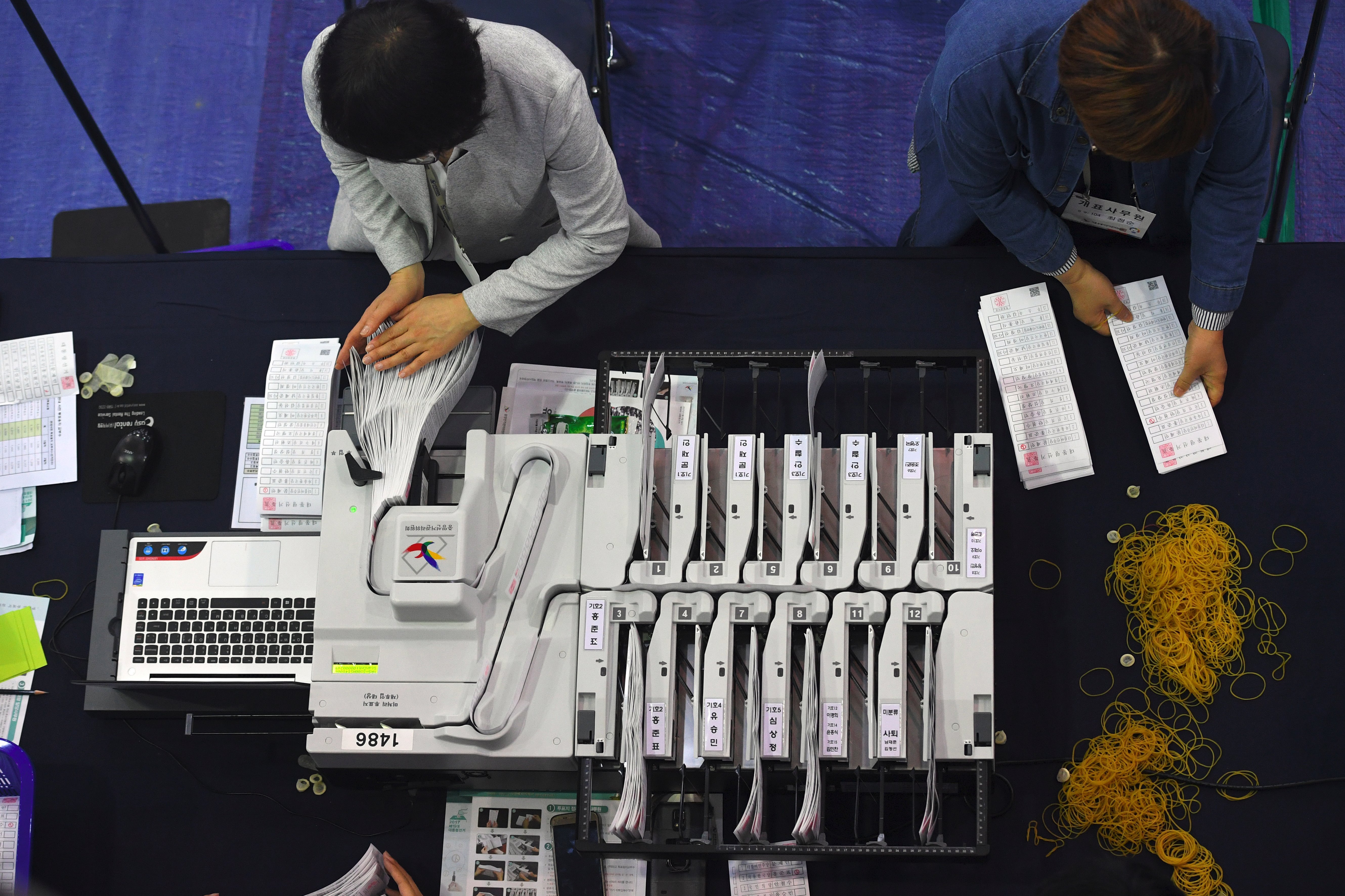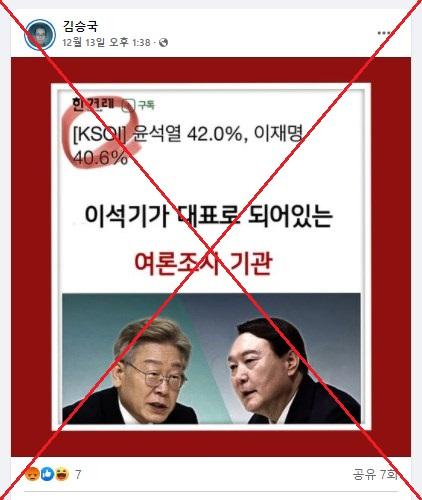
Controversial former lawmaker not linked to South Korea election poll
- This article is more than one year old.
- Published on January 3, 2022 at 03:31
- Updated on January 3, 2022 at 06:30
- 3 min read
- By SHIM Kyu-Seok, AFP South Korea
Copyright © AFP 2017-2025. Any commercial use of this content requires a subscription. Click here to find out more.
The claim was shared here on Facebook on December 13, 2021.
The post includes a screenshot of the headline and photo from a Korean-language report on the survey result by local news outlet Hankyoreh.
The Hankyoreh report states that a survey conducted by the Korea Society Opinion Institute (KSOI) from December 10 to December 11, 2021, found leading presidential candidates Yoon Seok-youl of the main opposition People Power Party with a very slim lead over Lee Jae-myung of the ruling Democratic Party.
South Korea is due to hold a presidential election on March 9, 2022.
However, text overlaid on the graphic in the misleading posts describes KSOI as: "A polling organisation which lists Lee Seok-ki as its head."

Lee Seok-ki is a former lawmaker of the now-defunct left-wing United Progressive Party.
He was sentenced to 12 years in prison in 2014 for plotting an armed rebellion in support of North Korea, according to this AFP report. The term was later reduced to nine years on appeal after the high court ruled in 2015 that Lee had not actually plotted a rebellion, but only encouraged one, AFP reported. Lee was released on parole on December 24, 2021.
Comments on the posts indicate social media users thought the polling firm's purported link to Lee cast doubts on its survey results.
"This shows that this polling survey cannot be trusted," one comment said.
"Finally they've started to obscure the eyes and ears of the public through manipulation of public opinion," said another.
Similar posts linking Lee to KSOI have also been shared on Facebook here and here.
Another post on Twitter included the claim that KSOI was "founded" by Lee.
But a spokesperson for KSOI told AFP that the claims were "untrue" and that the polling firm was not founded by Lee nor affiliated with him.
Publicly available corporate filings by KSOI do not list the former lawmaker among its management.
Lee is not registered in KSOI's business listings on the database of the Fair Trade Commission, a South Korean regulatory agency, nor on BizNo.net, a database compiling business registrations from several government ministries in South Korea.
This report, published by local media Ohmynews on July 10, 2007, indicates the polling company was founded in July 2003 by political commentators Kim Heon-tae and Jeong Ki-nam.
The earliest archived version of KSOI's website, dated July 13, 2003, lists Kim and Jeong as its directors.
KSOI's website identifies Kwon Soo-jeong as the organisation's current head.
Several media reports — including from South Korean media outlets Dong-A Ilbo and Newsis — have linked Lee to another polling organisation, the Social Trend Institute (STI). The reports state Lee was the founder of STI.
The two polling organisations' full names in Korean contain two identical words: 사회 (sahoe), which means "society" and "social", and 연구소 (yeonguso), which means "institute".
Is there content that you would like AFP to fact-check? Get in touch.
Contact us
